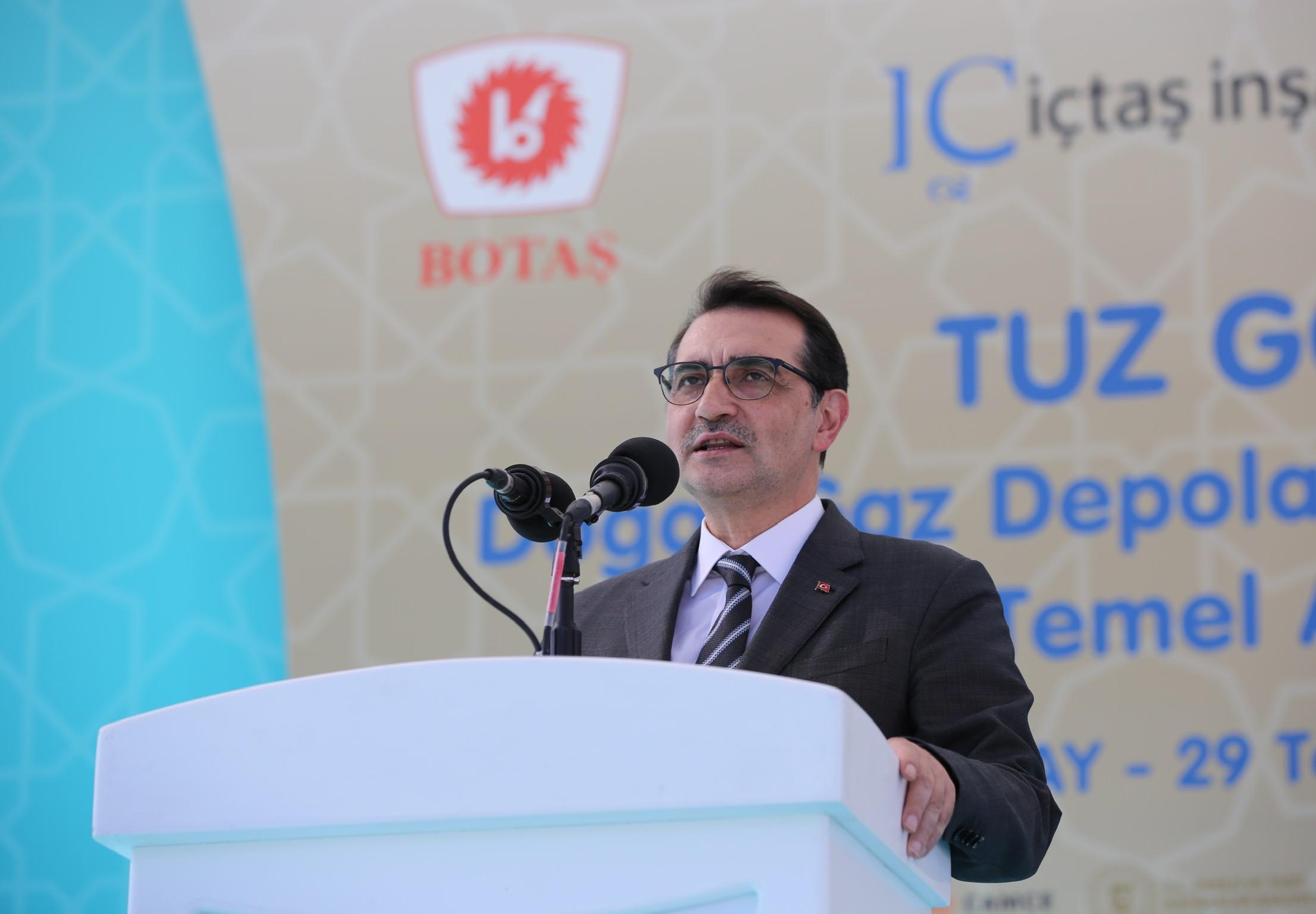
The Salt Lake natural gas underground storage facility, the largest gas storage project in the world, is the greatest response to those uttering sanctions threats to Turkey in the east Mediterranean, Turkish energy minister has said.
“Turkey always has alternatives. The international legitimate rights of Turkey and the Turkish Cyprus can never be matters of negotiation. Our door is open to those wanting to do business with us,” Energy Minister Fatih Dönmez said on July 29.
Dönmez’s remarks came at the groundbreaking ceremony of the second phase of the Salt Lake Underground Storage Expansion Facility project. Turkish Petroleum Pipeline Corporation (BOTAŞ) awarded the design, supply and installation of the second phase to a joint venture between China’s Camc Engineering and Turkey’s IC İçtaş Construction.
“The issue of the eastern Mediterranean does not only concern the relevant ministries. It is the issue of 82 million [citizens of Turkey],” Dönmez said.
“This is Turkey’s existential struggle against those uncomfortable with its presence.”
Turkey has always undertaken a “constructive” role in the international arena yet never refrained from defending its rights, Dönmez said.
“With this power and faith, we will never take a step back, neither in the eastern Mediterranean nor in any other subject in which’s righteousness we believe in,” he said.
‘Turkey’s problems with natural gas supply is now over’
Turkey’s problems with supplying natural gas is now over, thanks to the investments and projects that have been ongoing in recent years, according to the minister.
“Recent investments such as natural gas storage facilities, Floating Storage and Regasification Unit [FSRU] and liquefied natural gas [LNG] works along with its international pipelines such as the TurkStream and Trans-Anatolian Natural Gas Pipeline, has completely eliminated Turkey’s gas supply issues,” Dönmez said.
The country’s current infrastructure produces over 300 million cubic meters of gas while its daily consumption is about 250 million cubic meters, Dönmez said.
“We will hopefully increase [the production] to 400 million cubic meters in the near future,” he added.
Furthermore, in 2018, Turkey distributed gas to all its 81 provinces along with 561 residential areas, the minister said.
“Easy access to the natural has brought the free market with itself,” he said. “Turkey became the first country in its region that has natural gas prices form in the free market.”
“The Salt Lake Underground Storage Expansion Facility project is the largest ongoing storage project in the world,” Dönmez underlined.
“Once completed, its storage capacity will reach 5.4 billion cubic meters, making it the largest natural gas storage facility established on a composition of salty structure,” he said.
Turkey on July 29 kicked off the second phase Salt Lake Underground Storage Expansion Facility project. The project will ensure supply of 80 million cubic meters per day of natural gas to the country’s gas network.
The project is expected to be completed by 2023. One of the major objectives of Turkey is to have it meet at least 20 percent of its gas demand by 2023.
As of today, the facility in Salt Lake stores about 680 million cubic meters of natural gas and has a withdrawal capacity of 20 million cubic meters.
Apart from the project in Salt Lake, Turkey has two more ongoing projects regarding natural gas.
The Kuzey Marmara Natural Gas Storage Expansion Project, for instance, is planned to increase the total storage capacity to 4.6 billion cubic meters and withdrawal capacity to 75 million cubic meters per day.
Another ongoing project is in the Gulf of Saros, regarding the connection of FSRU to natural gas transmission system at the gulf.
On June 27, 2018, the World Bank and China-led Asian Infrastructure Investment Bank (AIIB) approved a total of $1.2 billion credit for the Salt Lake facility, which was launched by Turkish President Recep Erdoğan on Feb. 10, 2017.